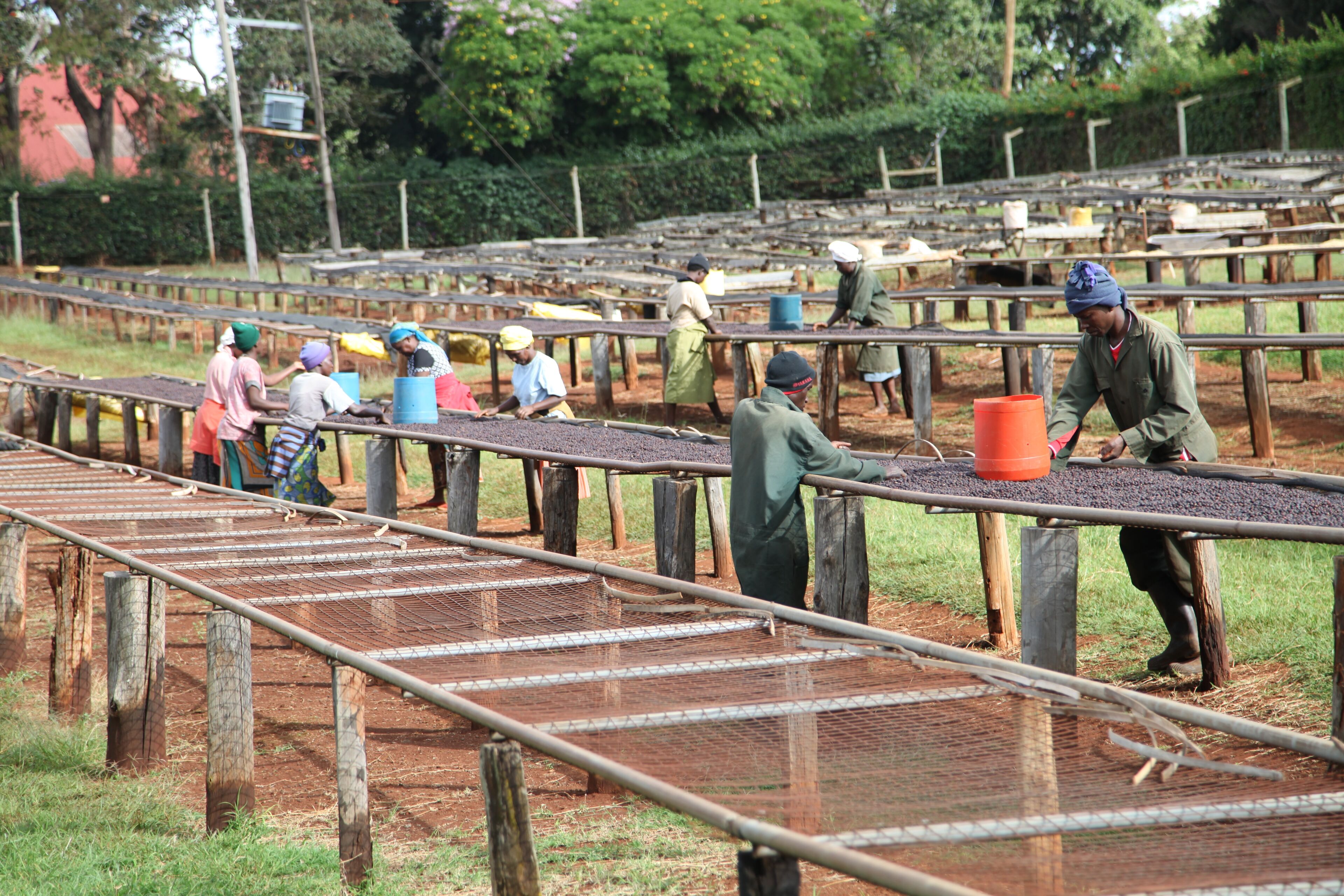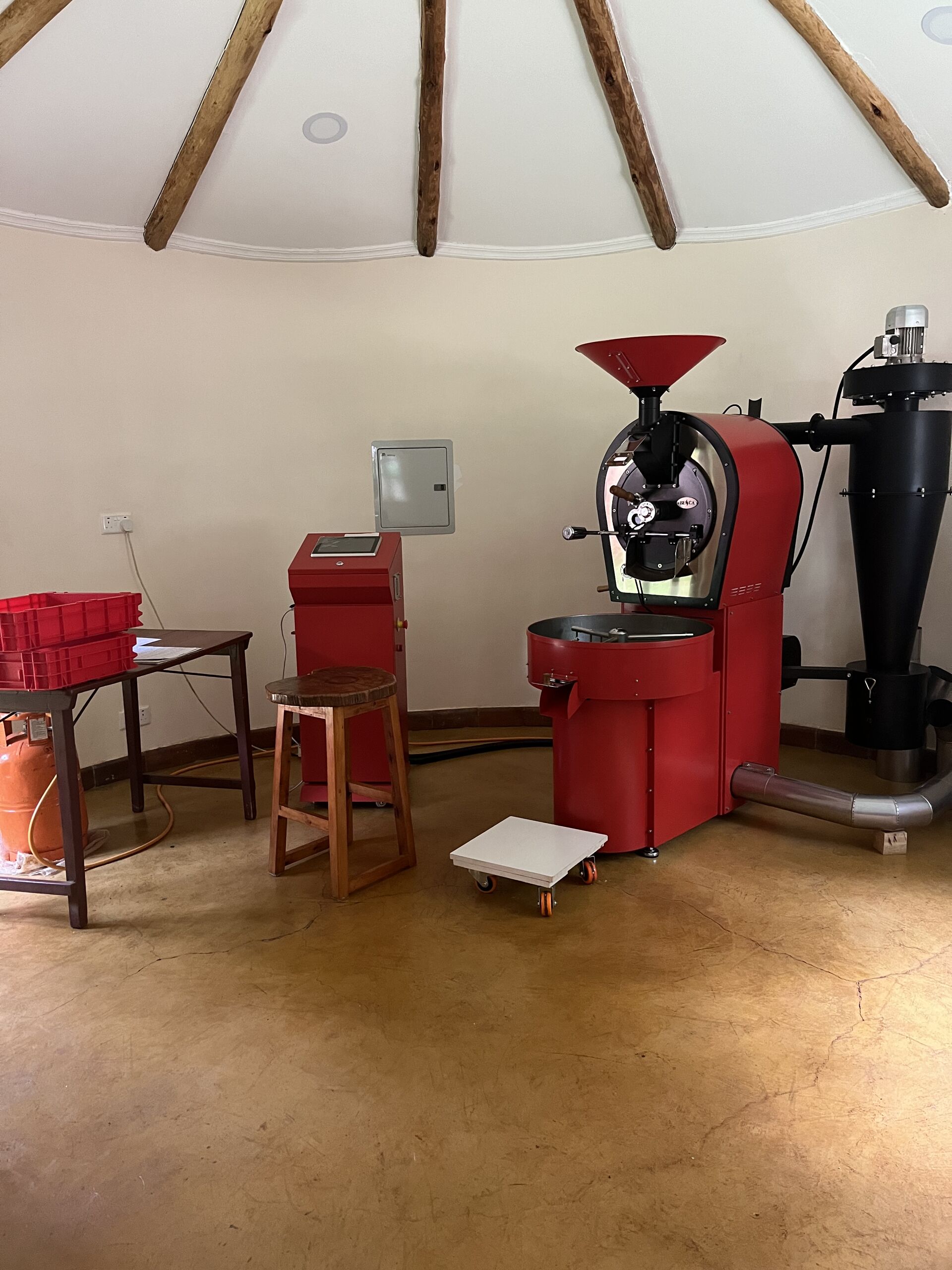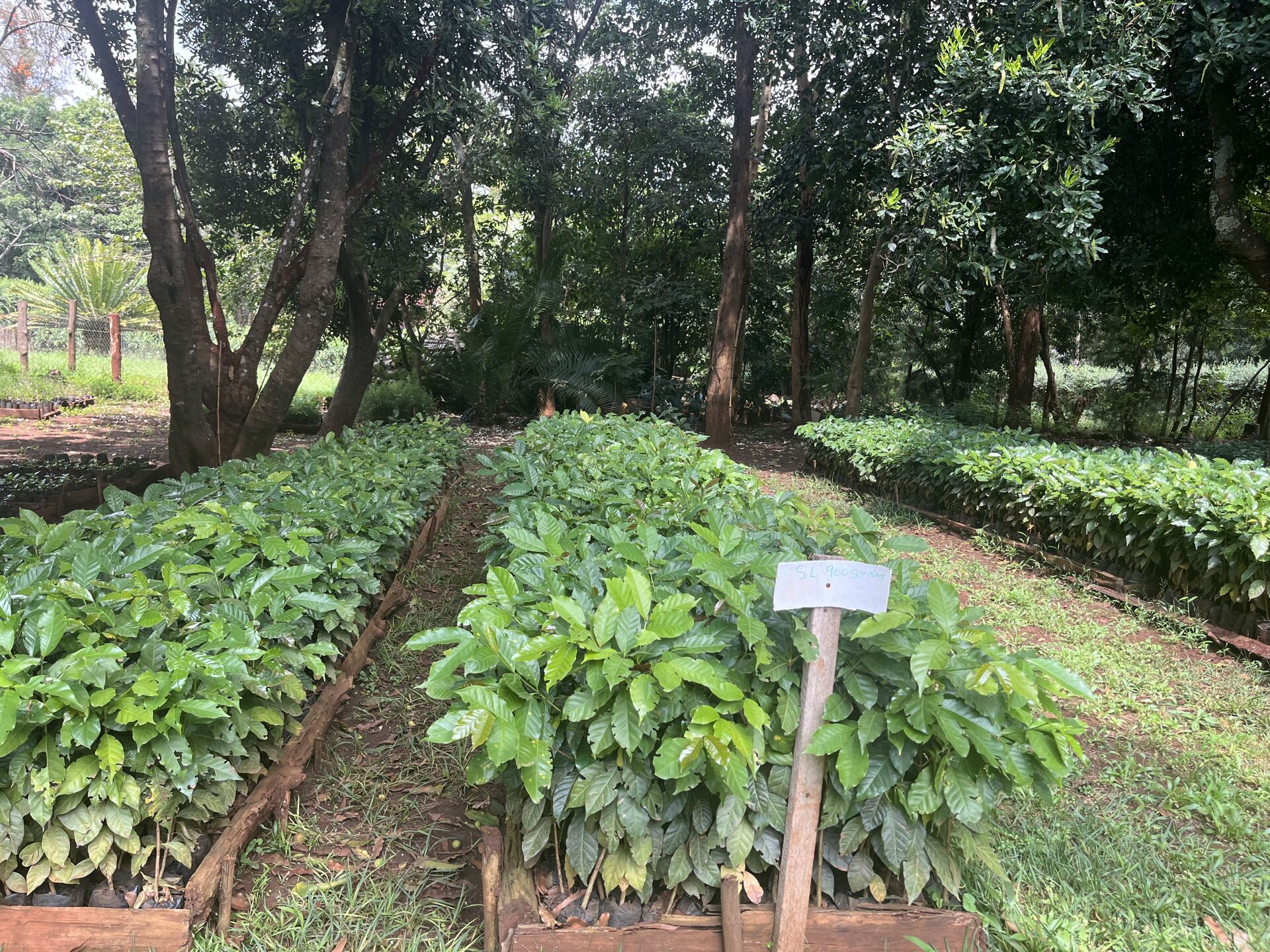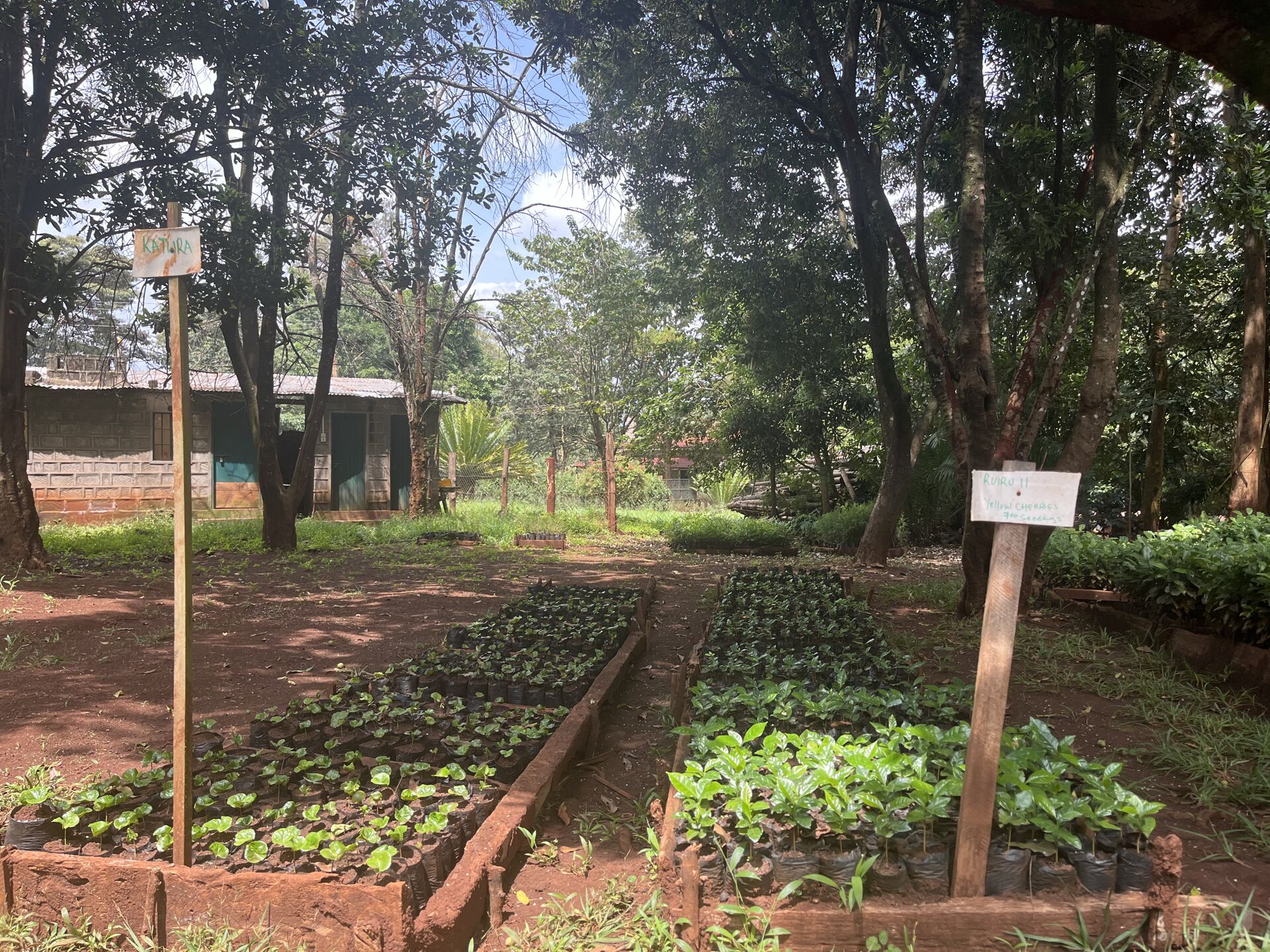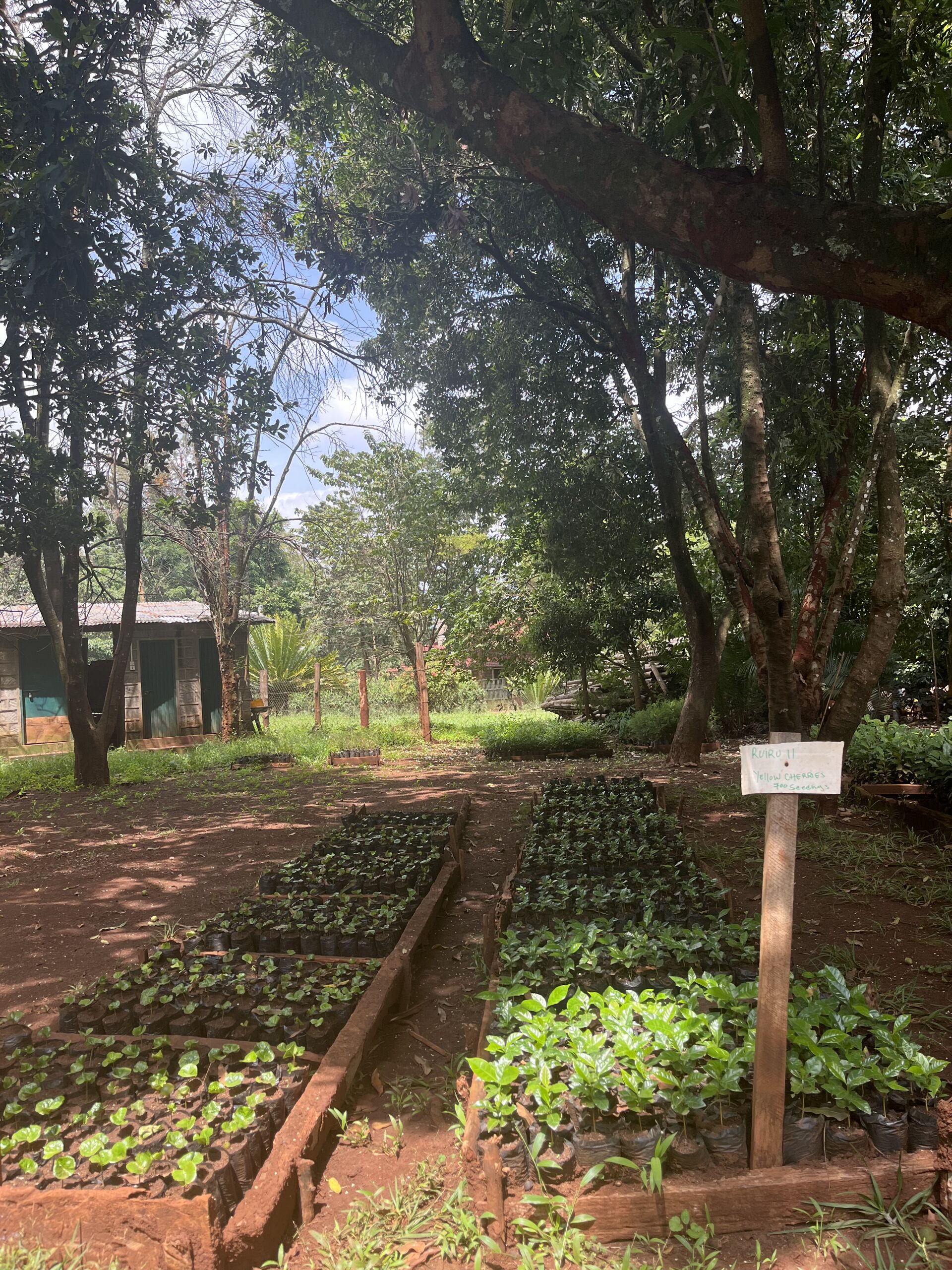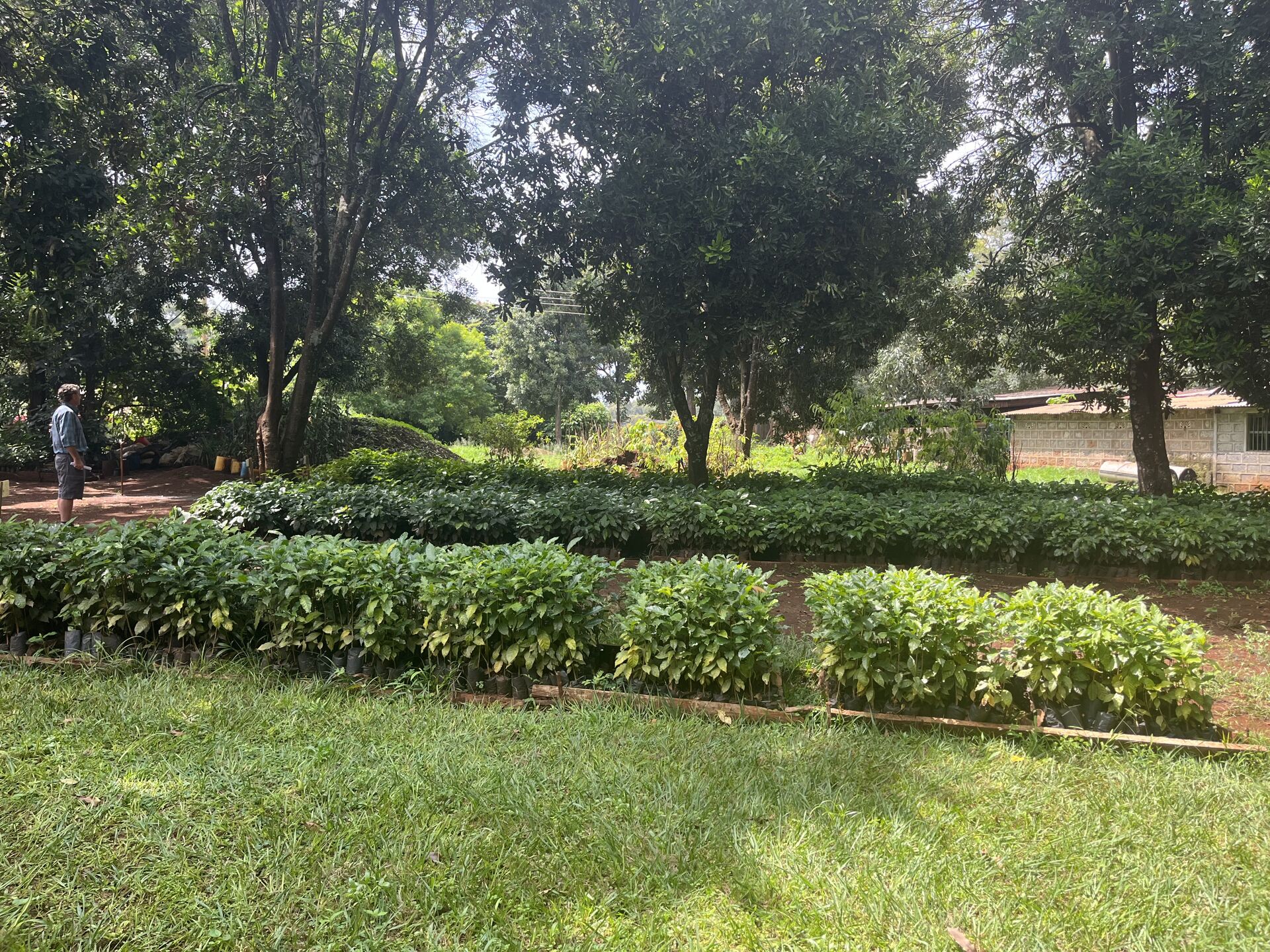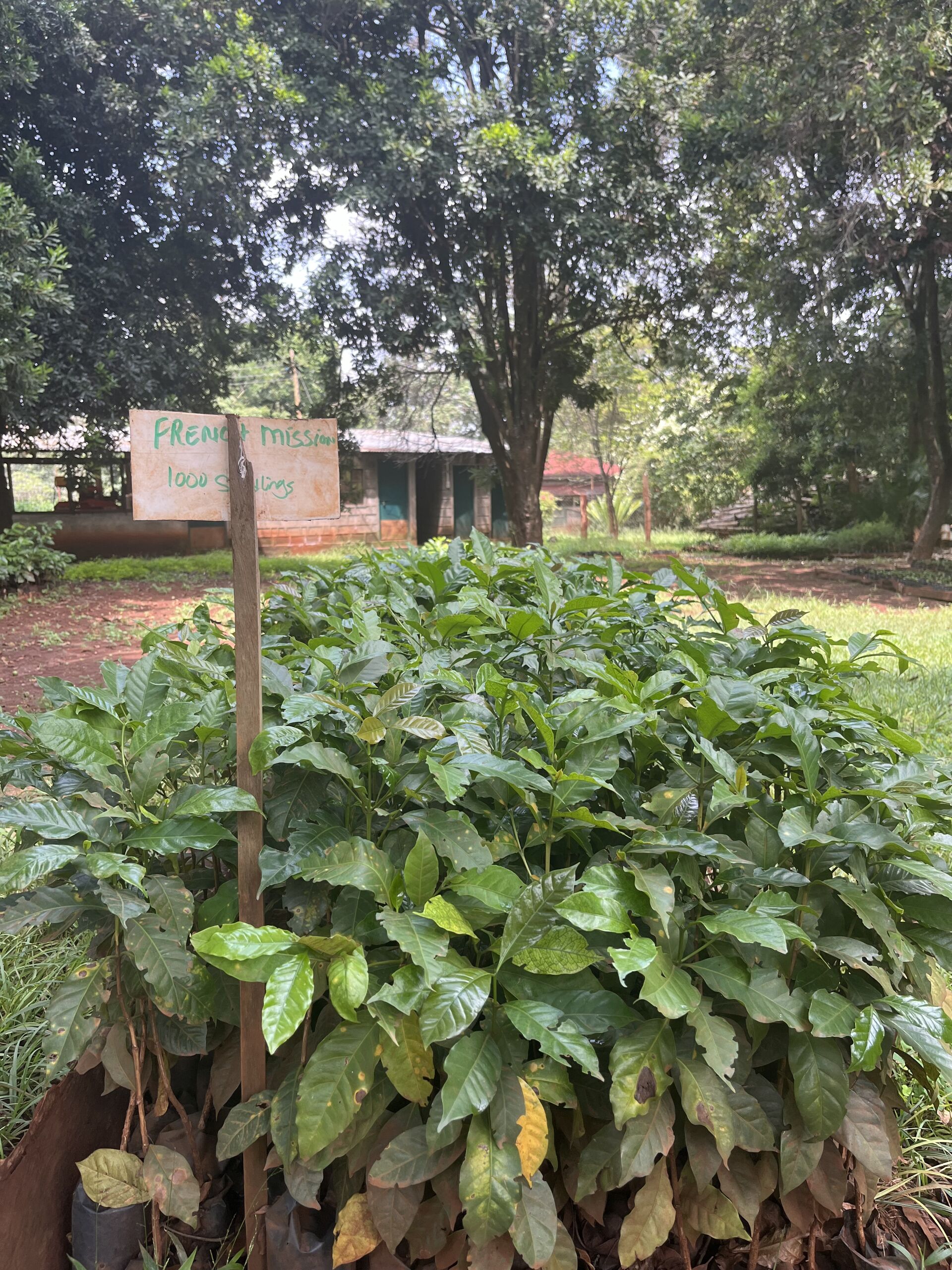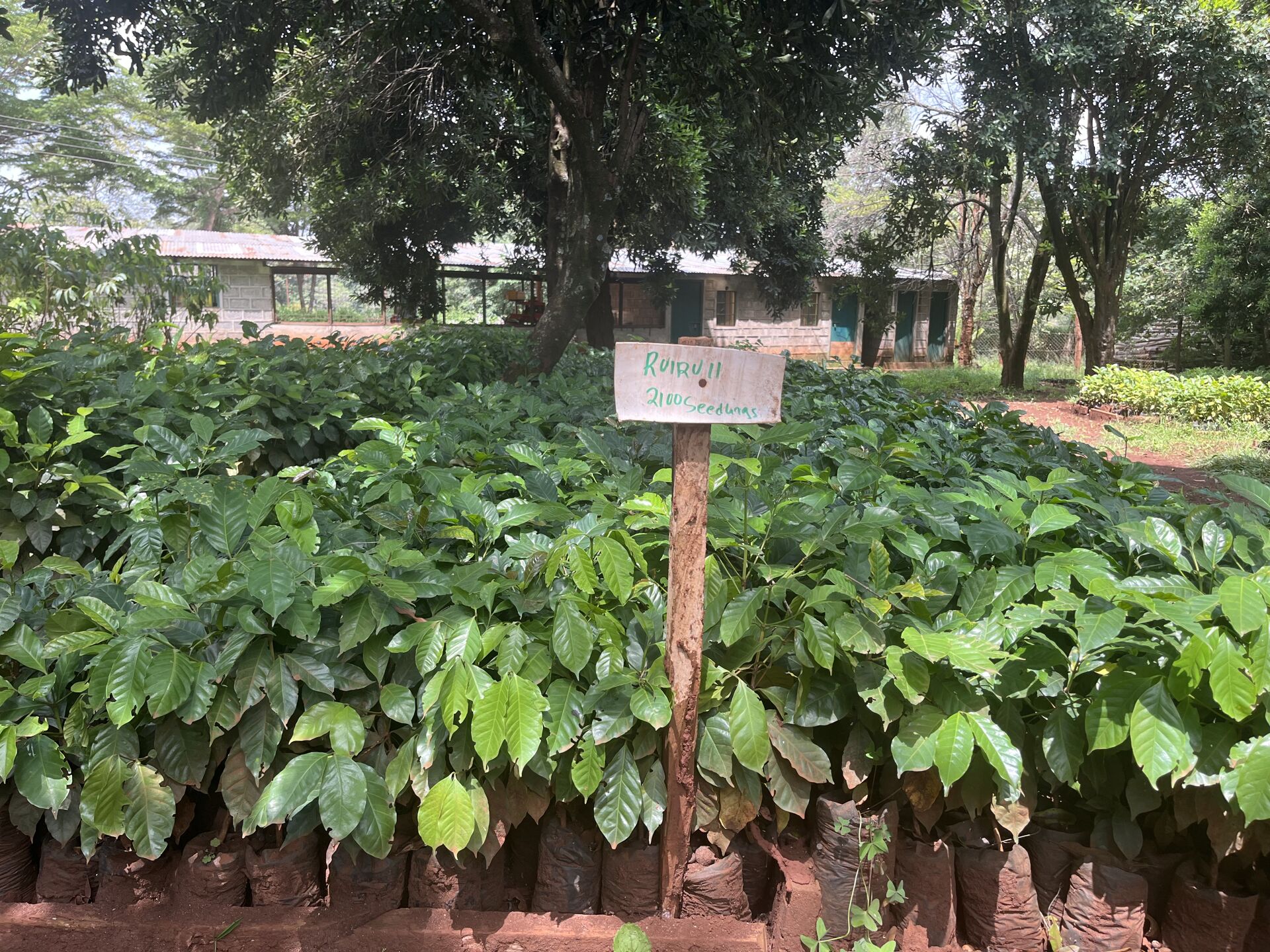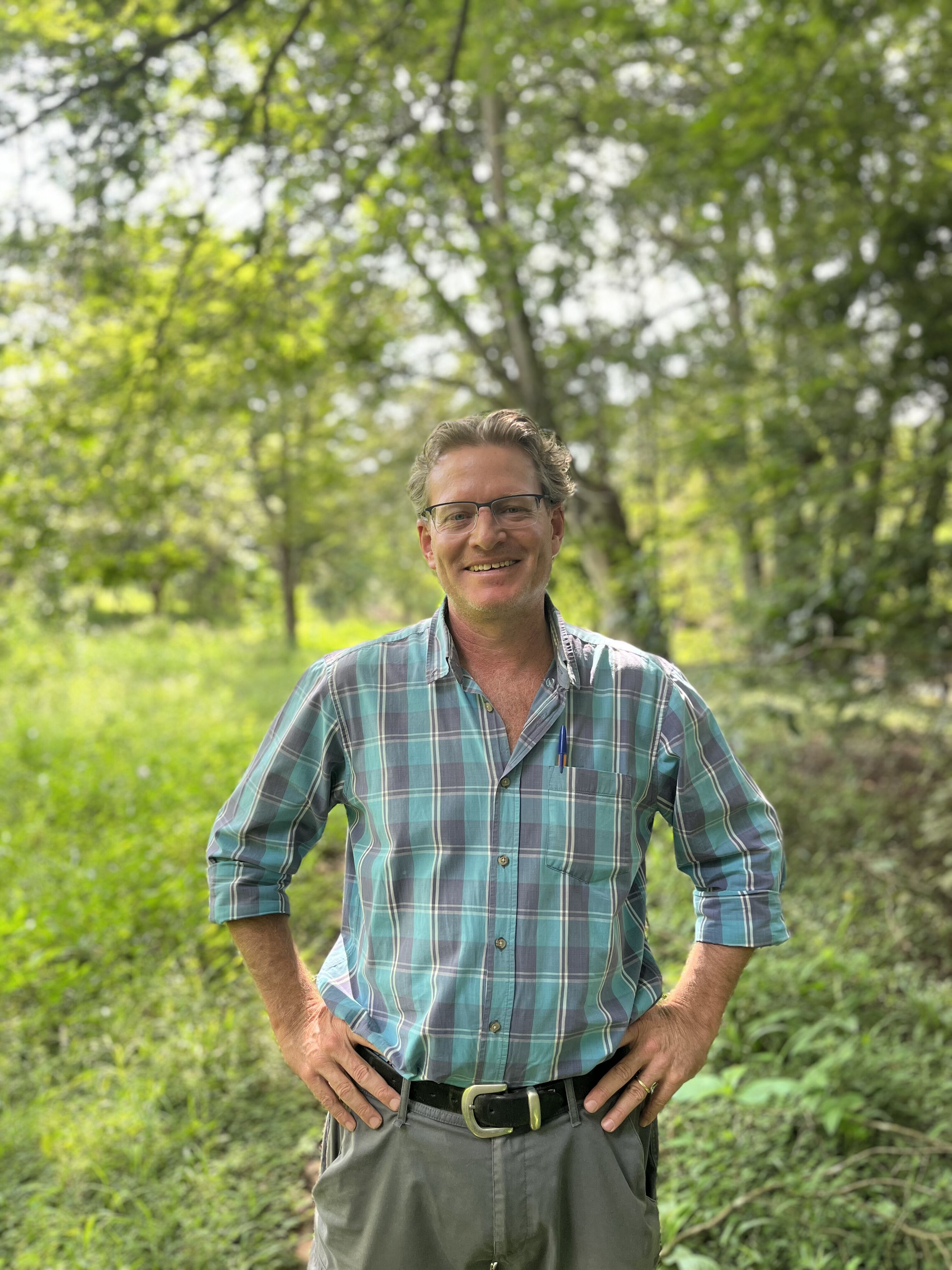Chania Estate est tenue par la famille Harries depuis plusieurs générations. Le domaine de Chania, nommé d’après une rivière voisine, constitue un pilier de l’héritage familial en matière de culture du café. Certains caféiers étaient déjà présents avant l’achat du domaine par la famille, mais la production de café s’est progressivement intensifiée pour devenir son activité principale. Aujourd’hui, le domaine est reconnu pour la diversité de ses variétés.
Le domaine cultive la Mission Française (MF), une variété réputée pour sa grande taille, son rendement élevé et ses grains volumineux. Il produit également des variétés SL (SL28 et SL34), deux des célèbres variétés développées par les Scott Agricultural Laboratories au Kenya. Bien que ces variétés offrent des grains de haute qualité, elles sont sensibles aux maladies. Pour pallier ce problème, le domaine a introduit Batian, une alternative résistante aux maladies offrant une qualité comparable. Cette variété plus récente a été spécialement sélectionnée pour sa résistance à la maladie du CBD (Coffee Berry Disease) et à la rouille des feuilles. Ruiru 11, une autre variété cultivée, est connue pour son rendement élevé, sa résilience et son adaptation aux plantations à haute densité.
Plus récemment, la ferme a commencé à expérimenter les variétés Panama et Gesha, encore en phase de développement, ainsi que le K7, apprécié pour sa résistance à la rouille des feuilles.
Le domaine de Chania intègre également des pratiques durables dans son approche agricole. Autrefois couramment cultivés, les noyers de macadamia sont progressivement remplacés par davantage de caféiers. De plus, le domaine réduit progressivement l’utilisation de pesticides au profit de techniques d’agriculture biologique. L’élevage, en particulier celui du bétail, contribue à la durabilité de la ferme en fournissant du lait aux travailleurs ainsi que du fumier pour une fertilisation naturelle. Elle est l'une des deux dernières fermes de tailles moyennes qui restent au Kenya de nos jours.
Les fermes emploient 40 personnes à temps plein, mais lors de la récolte, jusqu'à 300 salariés sont nécessaires pour la sélection et la préparation des cafés. Une école maternelle a été ouverte sur la ferme pour prendre en charge les enfants des salariés.
La récolte du café est faite intégralement à la main et les cafés sont tous transformés sur place. La plupart des cafés sont traités par voie humide, mais Boyce produit également des cafés natures, honey, ou encore des microlots mono-variétal.

